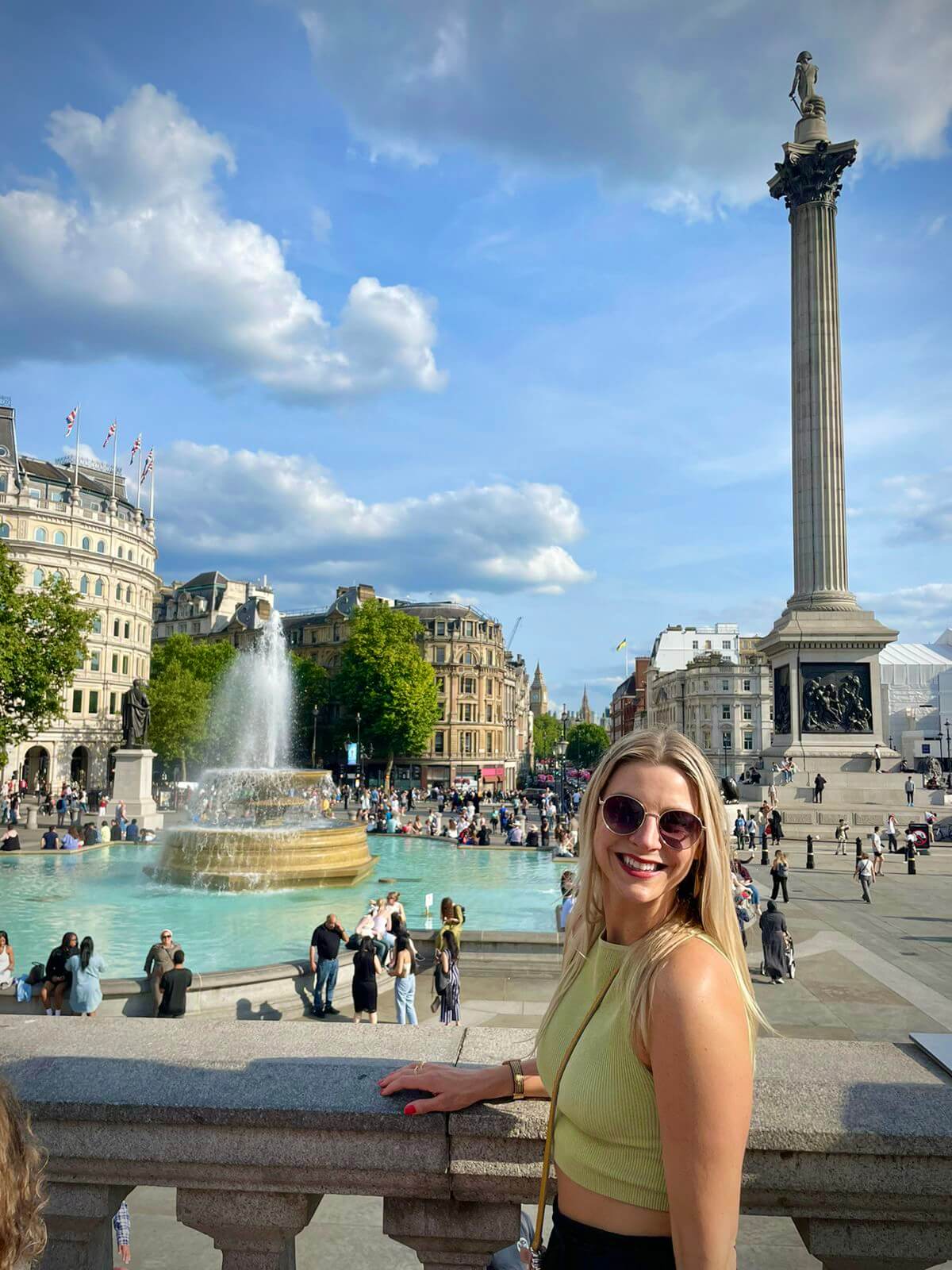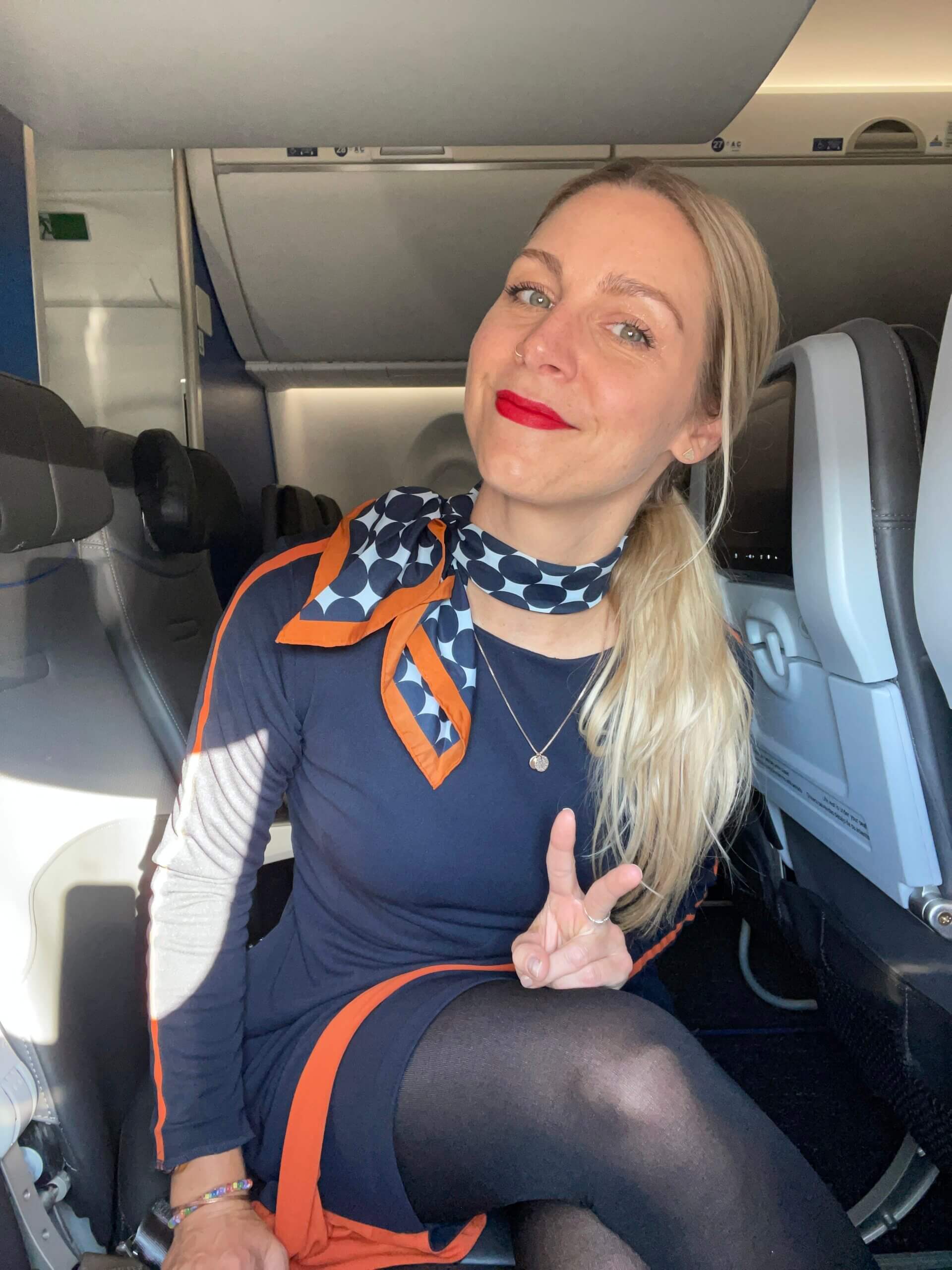
So, You Want to Be A Flight Attendant. Here’s How to *LAND* Your Dream Job.
Prospective flight attendants, gather round!
Detailed tips, need-to-know info, and the secret to nailing your flight attendant interview all lie ahead. Weee!
Those of you who have been here before know that this is the “I’ll do it for a year” job that turned into a decade. At this point, I’m not leaving flight attendant life unless they kick me out. I LOVE my job.
Being a flight attendant is not all sunshine and travel perks. It is a whole lifestyle, one that comes with its own particular scheduling quirks, obstacles, benefits, and even its own language. It also comes with an extended family—maybe the best perk of all.
If you’ve ever thought about working as a flight attendant, this post is for you. I’ve got everything you need to know about becoming a flight attendant—from application to interview to training—and the deets on what exactly you’ll be getting yourself into.
Buckle up, kids, it’s going to be a long flight.
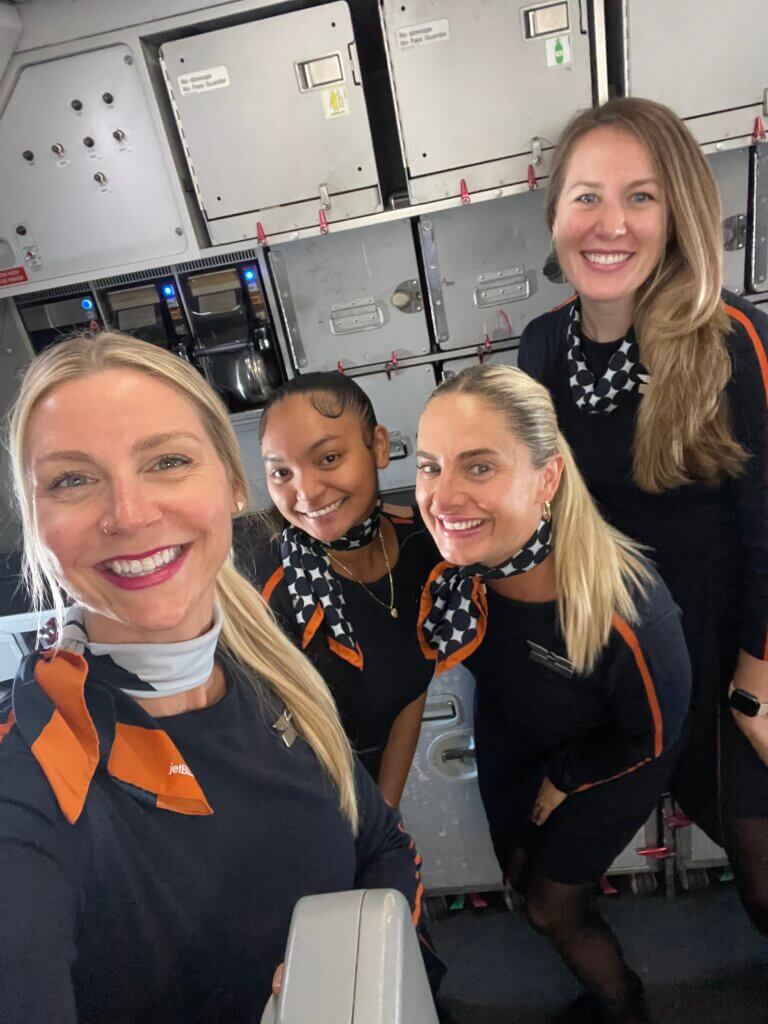
Ready to join the squad?
Things to Consider Before Becoming a Flight Attendant
First things first. Flight attendant life is NOT for everyone. The schedule is weird, the starting pay is low, and it is a volatile industry. Also, clean-freaks, watch out. In the following section I’m going to break down some important info about working as a flight attendant, so that you can make the best choice for yourself. This is not intended to scare you off or change your mind, I just want to be transparent so you have a better idea of what you’re getting into. If you still want to pursue this (awesome, in my opinion) career, then you can continue to the following sections about the application, interview, and training process.
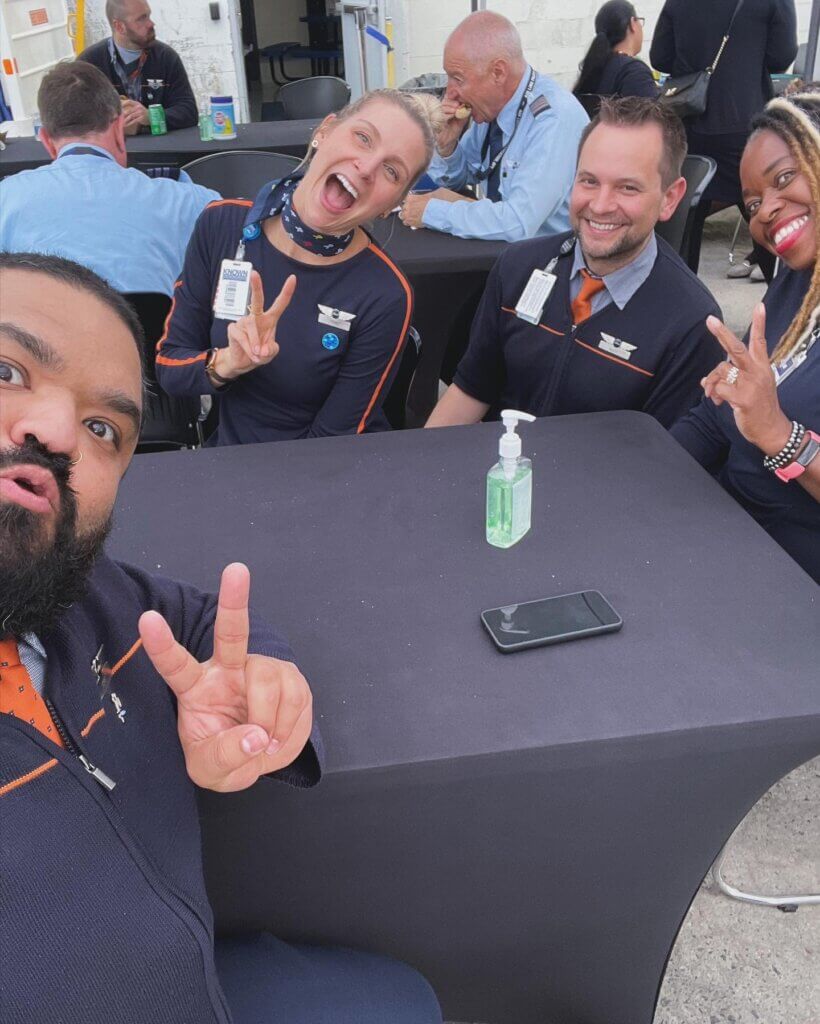
You can totally sit with us! (Once you get your wings.)
1. The Schedule
You will work holidays. You will work weekends. You will work late nights and early mornings. You will work many, MANY more hours than you are paid for. You will work through delays and into days off. You will work when you didn’t expect to be working.
But not forever.
Commercial aviation is a seniority-based industry. So when you work as a flight attendant, the longer you are there, the better your job gets. Gaining seniority means:
- More control of your schedule (Where you go, and when you go there)
- More money (most airlines give agreed-upon annual raises)
- More opportunity to make money (because you have control of your schedule)
We’ll stick to scheduling for now, but don’t worry, we’ll talk about the money soon.
The first year working as a flight attendant is hard. When you first start working as a flight attendant, you begin your career on reserve. Being “on reserve” means being on call. You wait, the company calls if they need you to work, and they assign you a trip. You don’t know if you’ll end up working, or what time, or where to.
When you are on reserve all the time (when you are a new flight attendant), you are called a Reserve. Your whole schedule will be blocks of days for you to be on call. That is what working as a reserve flight attendant looks like.
When you gain some seniority, you become a Lineholder. “Being a lineholder” or “Holding a line” means that your seniority allows you to get a schedule of trips instead of reserve days. A “Line” is your month of scheduled trips. When you are a new lineholder, when you first start holding trips instead of a reserve schedule, your line will be shit. You’ll be the bottom of the totem pole of lineholders, so you may have to work more weekends or holidays and you might get stuck with the trips no one else wants because you’re junior. (Junior because you’re newer, as opposed to being senior.) The beauty of having a line, even when your line sucks, is that you KNOW in advance where you’re going. You know what weather to pack for, how much food to bring, whether to pack a large suitcase or a small day-turn bag. You know what time to set your alarm for and what time you need to leave for the airport. You can plan your life around your schedule because you know what your schedule is.
When you are on reserve, by contrast, you only know the days you *could* be called into work. In the middle of winter you could be sent to Buffalo, NY or Cancun, Mexico. What to pack for clothes?! You could be called in to work a turn (this is where you fly somewhere and fly right back) or you could be called in for a 4-day trip. How much food do you prepare? Also, you might never be called. Meaning you are just sitting around, doing nothing. This is okay if you are home, but many flight attendants (like myself) live far from where they work. They commute by airplane and stay in crashpads (shared housing for flight attendants) in between trips or on reserve days.
You don’t need to remember every detail about scheduling. And this section is only the tip of the iceberg when it comes to flight attendant schedules. Each airline uses a different software, has different reserve systems, and different ways of awarding schedules. All of this you will learn as you go.
But the biggest takeaway about a flight attendant’s schedule is this: Holidays, weekends, and plans will be missed. Aviation is a 24/7/365 operation. If you’re not up for working when others are having fun, partying, or relaxing, if you crave stability and routine, then this might not be the career for you.
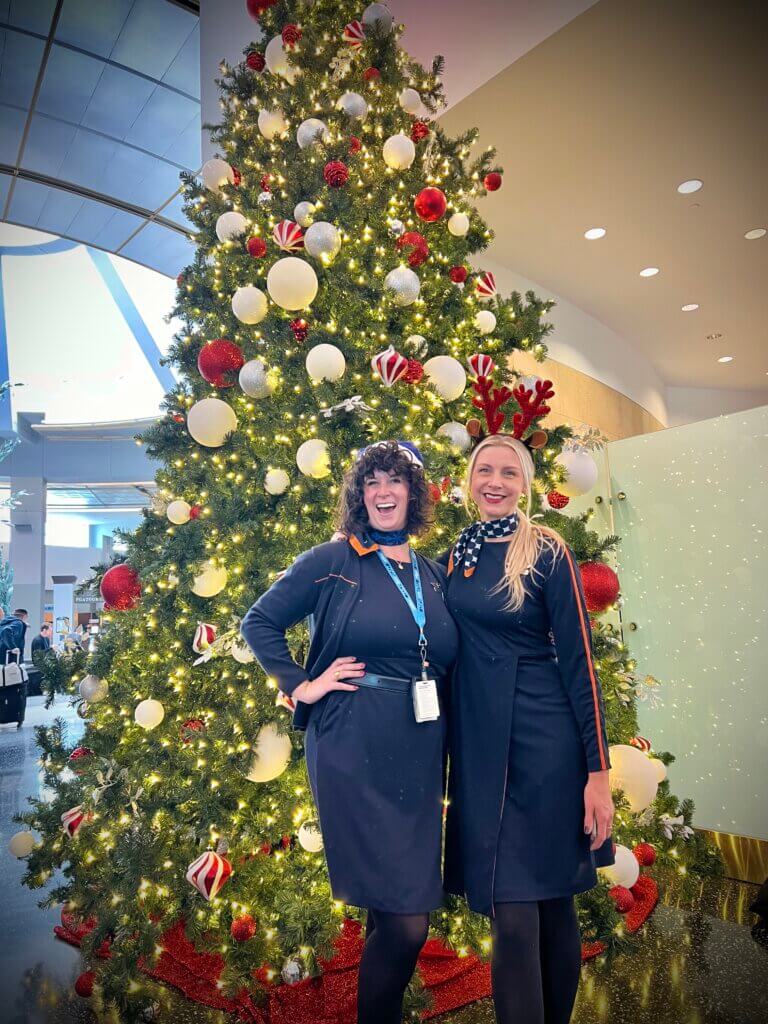
Expect holidays to look like this, at least in the beginning.
2. The Money
I’m going to say it up front: This is NOT a high-paying job.
Put in enough time with an airline and you can make a good living working as a flight attendant. I, as a single flight attendant, bought myself a house and travel “a lot”, according to some people. But I also live a fairly basic lifestyle. If you are the type of person who wants to show outward signs of wealth, who needs the 5-star hotel, the luxury car, or a collection of designer goods, then this might be something to consider before signing up.
No matter what lifestyle you are accustomed to, the first year working as a flight attendant is tough. Starting pay for flight attendants is low, especially if you work for a smaller or regional airline. Most of the pay scales are public, so I’ve included some here for reference. The numbers don’t look bad at first glance, but remember, these are not 40-hour work weeks. Flight Attendants are paid for “flight hours”, typically between 70 and 150 hours for the month. New reserve flight attendants are guaranteed pay for 75 hours each month. It’s not a lot.
My first year as a flight attendant, I made $19,000. Read that again. Thank god it was not in this economy and things were a bit more affordable, but I still had to move in with family for my first six months before I could hold my own splitting the bills for a shared apartment.
Don’t let that scare you away if you want to work as a flight attendant. The first year is the worst, but after that everything gets better and better. With annual raises and periodic payscale increases to keep up with inflation, you can make your way out of the worst of it pretty quickly. And once you have some seniority and become a lineholder, you are able to work more to make more money.
My advice would be to start a little savings fund for the early days of flight attendant life. You’ll thank me later!
For a more in-depth look at flight attendant pay scales, including year over year raises and incentive pay, check out this article from Flightattendant.pro.
Logistics.
Flight attendants are paid for FLIGHT HOURS. Many people think this means when the boarding door closes, but it is actually once the parking brake is released by the pilots. (So even longer than you thought!)
There are many, many, many hours flight attendants are at work and not being paid their hourly wage. If you want to know more about this, and help fight for fair pay for flight attendants, then check out my post Pay Me For Boarding: Why Flight Attendants Must Fight For Fair Pay.
Every airline pays on a different timetable and at different rates. Typically, full-time flight attendants work between 70 and 150 hours per month. Some airlines have lower max hours. Some airlines allow their employees to work part time. This will vary company to company, so find out about these policies before applying.
Training
Initial Flight Attendant Training takes between 4-8 weeks on average in the US. Some airlines pay you while you’re there. Some pay a designated amount per day but withhold payment until after training is completed. Some give a meal stipend. As far as I know all of them provide accommodation for the training period.
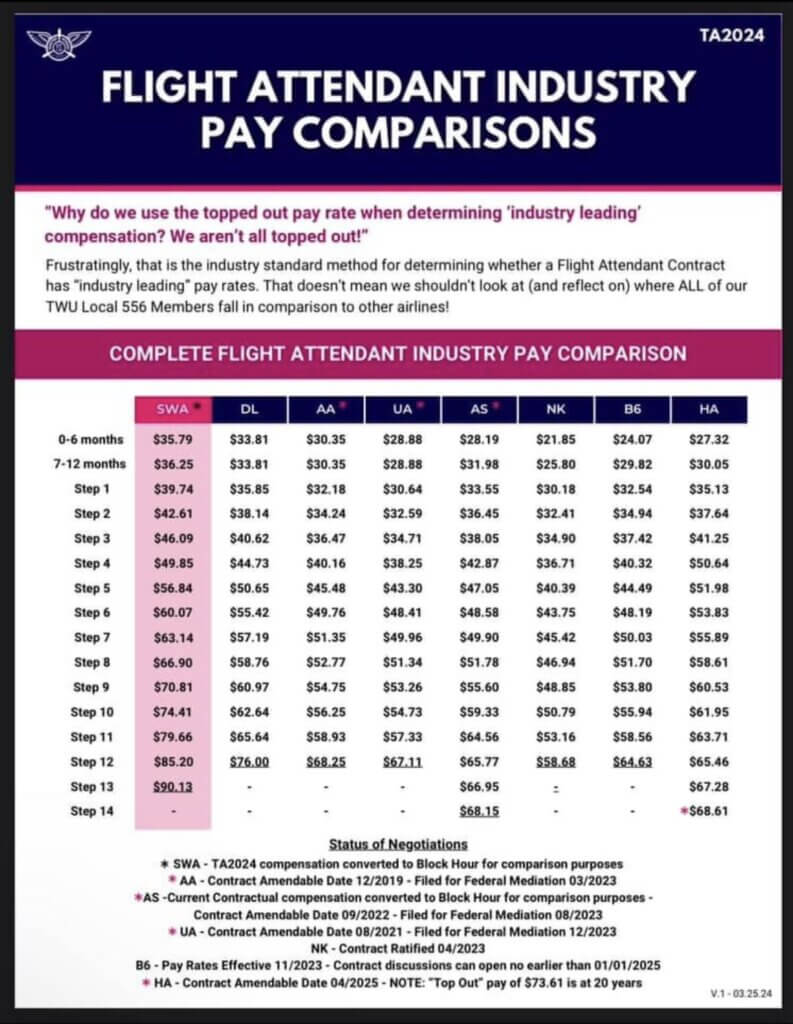
A comparison of flight attendant pay scales at US airlines.
3. The Disgusting
There is no way to put it lightly, this job is gross.
Airplanes are filthy, disgusting places, and when working as a flight attendant, you will be faced with a plethora of icky situations. Be prepared for bodily fluids—lots of them. Sticky floors and soiled carpets, smells that will make you want to cry, and assisting strangers in intimate ways you never expected to. Medical situations happen. Periods happen. Vomit happens. To read about some of my disgusting flight attendant stories, you can check out these posts:
You Can’t Make This Sh*T Up: The Redeye Turn From Hell
My Craziest Flight Attendant Story Ever
Of course not every day is that disgusting, but every day brings the possibility of something gross. I’ve learned to live with it—Bath and Body Works room sprays and sanitizer wipes really are a girl’s best friend. But for those of you who are germaphobes, this should be a serious consideration before becoming a flight attendant.
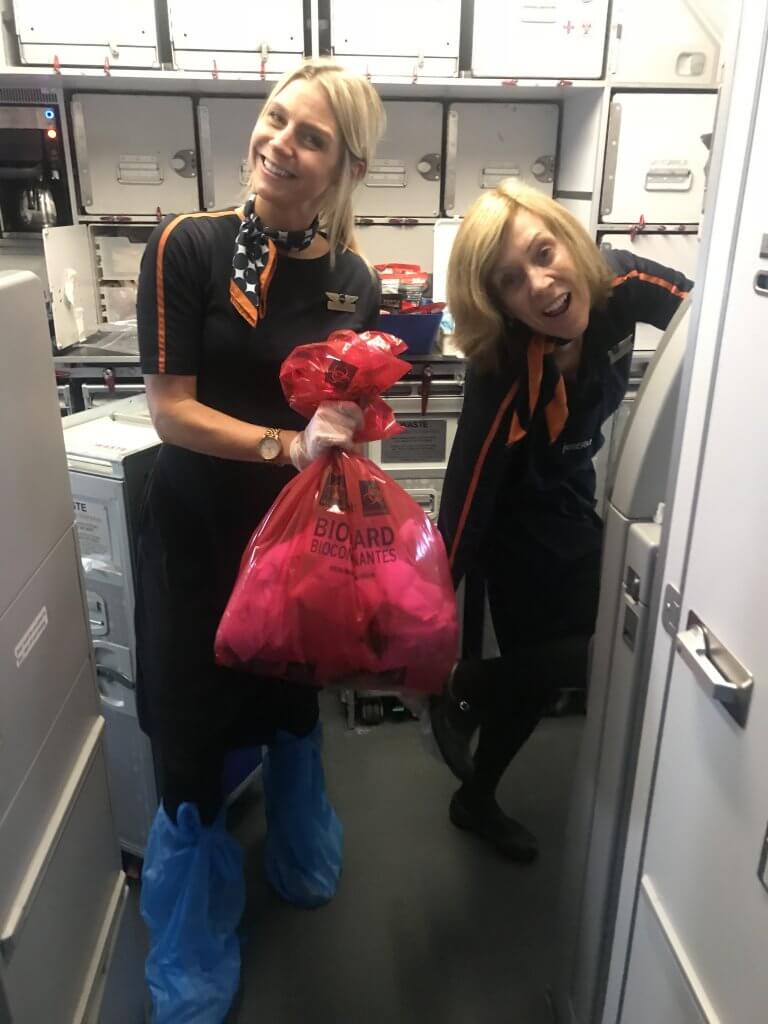
There will be fluids.
Still think you want to be a flight attendant? Then read on. Now that we’ve got the nitty gritty out of the way, about scheduling and flight attendant pay, let’s get you your wings.
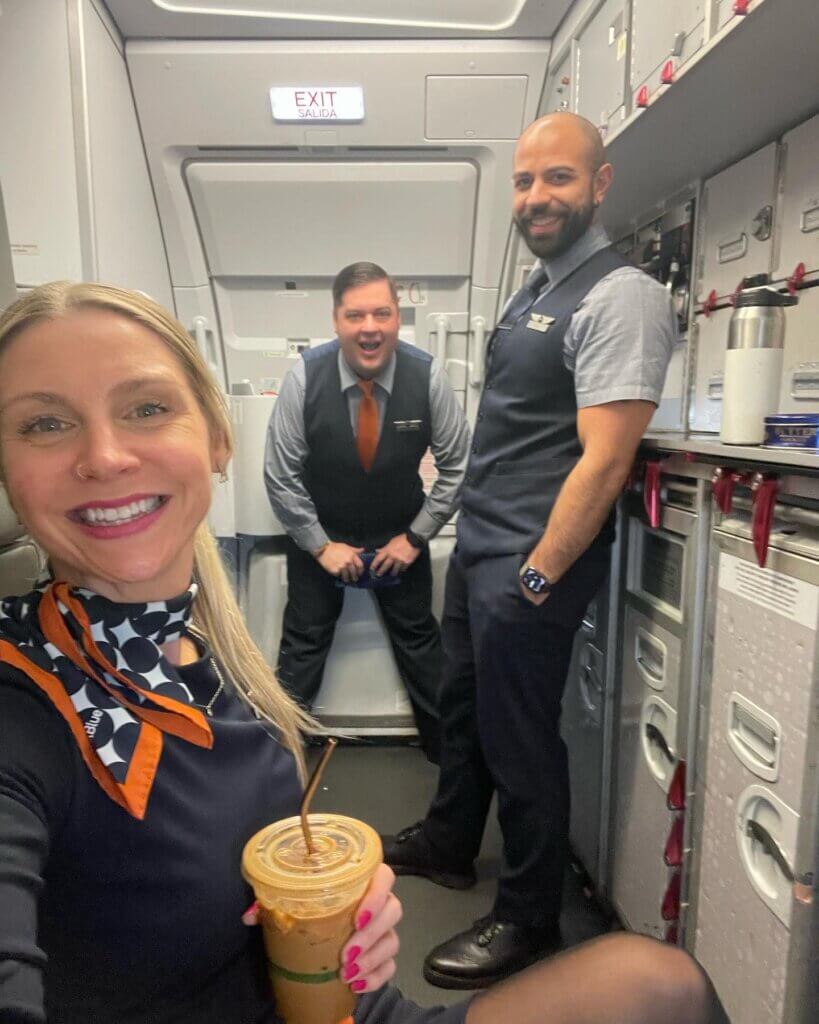
Come on, it's not so bad.
Getting A Job as A Flight Attendant
1. Choosing an Airline
Which airline you work for will have a huge impact on your quality of life and your salary. There are hundreds of different airlines you could work for, big and small, international and domestic, major and regional, and all of them has a unique culture and set of standards. In deciding which airlines you want to apply for, do your research and consider the following:
- What is starting pay?
- What is max pay?
(Most airlines stop giving those annual raises after a certain number of years.)
- Where are this airline’s bases or hubs?
Your “base” is where all your work trips will begin and end. Live in Chicago? You may want to apply with United because they have a base in Chicago. Always wanted to move to Miami? You might consider American Airlines, who has a base there. *Note that you do not have to live in your base city. You just have to work there. I currently live in San Diego but am based in Boston. I get on an airplane and fly to work!
- Is the airline unionized? And if so, which union do the flight attendants have?
Do a quick google search to see if the flight attendants seem happy with their current contract. Also, have there been any pickets or strikes recently and why. The battle between management and labor is not unique to aviation, but it is very prominent here. This information can give you insight into the kind of relationship between labor and management—combative or collaborative.
- Where do they fly?
If you want to be gallivanting through European cities on your layovers, then don’t put Mesa or Frontier as your first choice. If you live in a city not serviced by your airline, this makes life harder for commuting to work and travel.
- Do they offer part time?
This is important for some people who have small children, other businesses, or just don’t want to work full-time.
- What are the non-salary perks?
Travel benefits, health insurance, 401k matches, education programs, development workshops, family planning or legal resources—all of these things can be considered compensation outside of your monetary salary. And they are worth considering. My employer-provided health insurance covers elective egg-freezing, which I took advantage of last winter. We also have a 5% 401k match. MY coworkers and I are also entitled to 10 free therapy sessions per year with our health coverage. These are phenomenal benefits that make my company SO much more appealing to work for than if I were looking at salary alone.
- What is the culture like?
What are the core values of the company? The mission statement? What nonprofits or climate initiatives do they support? What kind of social events do they put on for their crews? What is their reputation with customers? Take all of these things with a grain of salt. Greenwashing, pinkwashing and corporate propaganda is alive and well in aviation—along with the rest of corporate America. Still, you can glean a window into how the airline thinks of itself and how it is perceived in the wider world. And that might matter to you.
Glassdoor.com is a great place to look up reviews from former and current employees. There are also facebook groups you can join to ask questions, get reviews, and information from those in the know. Just don’t take one single review as the whole picture. Try to look at a solid sample size if you want to get an honest take on working there.
Who’s hiring?
Another factor in which airlines you apply to work at is who is hiring. Once you’ve narrowed down your list of airlines you might like to work for (and I recommend going for at least three if you’re serious about becoming a flight attendant), then check out their websites.
Find the employment page and get reading. The page might be titled “Employment” “Jobs” or “Work Here” but it’s all the same. You’ll be able to see if the company is hiring and which positions. Some companies allow you to fill out a profile—to start your application process—even when they are not hiring. Then you can set alerts to receive an email when a hiring window opens. This saves you time in the application process, and you’re ready to go when they are looking. If none of your top 3 airlines are hiring, check out a few more. It doesn’t hurt to apply, even if just for the interview practice.
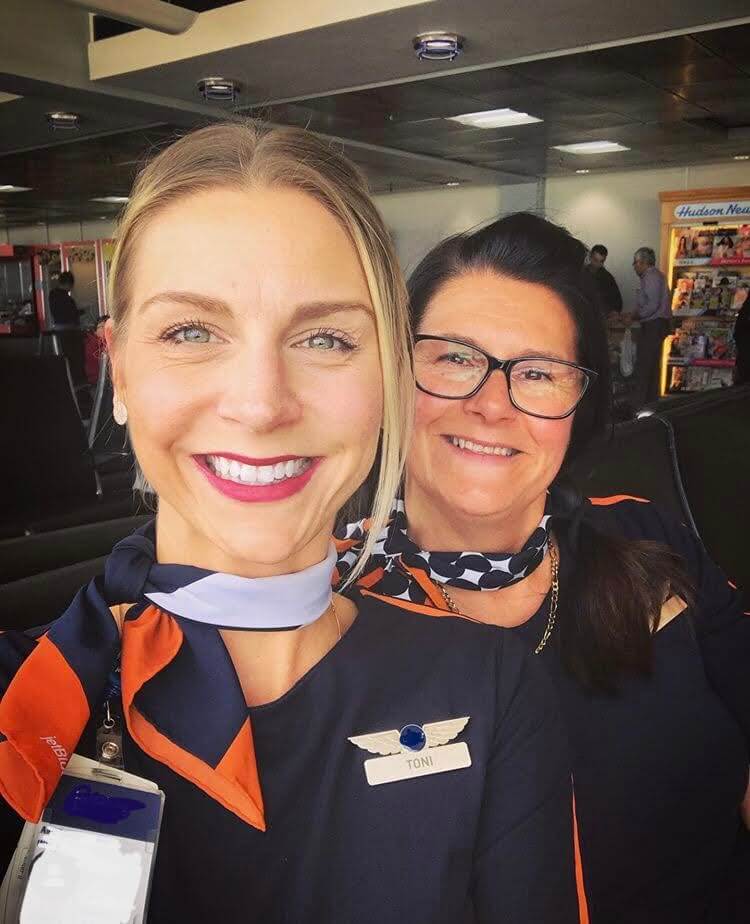
Choose an airline that seems like a good fit in terms of location, scheduling, and culture. OR go where your friends and family work. (Hi Mom!)
2. The Application
Besides the basic information you’ll need to fill out for your application—education, work history, date available to start, etc. —you will also need to provide a resume and cover letter. If you don’t have airline experience, DO NOT FRET. Aviation experience is not at all necessary to get hired as a flight attendant. Trust me! Here are the things you want to emphasize in your resume and cover letter:
- Customer Service
Customer service of ANY type is good experience for becoming a flight attendant. Bank teller, reservations specialist, bartender, whatever it may be, emphasize the customer service aspect and it’ll be a plus for you.
- Liking people
Saying “I’m a people person” may sound trite, but it is what it is. Just say it. (And hopefully mean it, at least a little bit.)
- Working as a team
- Being able to, and trusted with, completing a task unsupervised.
If you worked retail or restaurants and opened or closed the place without a manager—write that! This shows you are trustworthy and responsible. There are no bosses on the airplane, so they want to know you can handle your work and do the right thing on your own!)
- Problem solving and flexibility
Every day is something new and every day your schedule can be flipped upside down. Demonstrating that you are flexible, and not rigid, is important. Maybe you dealt with difficult customer situations at your previous role. Maybe you managed projects or planned events—both of which require problem solving and flexibility.
- Medical, Law enforcement, Emergency experience
Airlines love medical professionals. They love law enforcement, military, fire fighters, and EMTs. All of these professions require quick thinking, keeping cool in high-stakes situations, and compliance to strict safety rules and regulations. Any experience even remotely related to these fields should be expressed.
- Task completion (the boring stuff)
Your ability to do tedious or mundane tasks without getting bored or weary is a selling point. Being a flight attendant means doing the same things over and over and over. We check out medical and safety equipment every single time we step on the airplane. We set up carts or deliver the snacks. We arm and disarm our doors in a *very* particular way that varies airline to airline. There are so many little tasks that one could be tempted to skip. But we have them in place for safety. Because with routine, with checking every single time, and doing things in *just* the right way, we minimize the chance of errors occurring. When your job is careening through the air at 30,000 feet, errors can become really big really quickly.
So go on and tell them about your boring tasks, especially if they are rote and routine. Tell them how you cashed out the register, set up the bar for the next shift, kept up with client emails in a timely manner, helped break down the set after a play. Whatever your experience, frame it with this in mind. Doing things the right way can prevent errors and maybe even save lives.
- Diversity
Having worked with diverse populations is a huge plus. Your coworkers will be all different ages, races, sexual orientations, gender identities, religions, and from all different cultural, geographic and socioeconomic backgrounds. And so will your customers. Accentuate that you are comfortable with and LIKE IT that way.
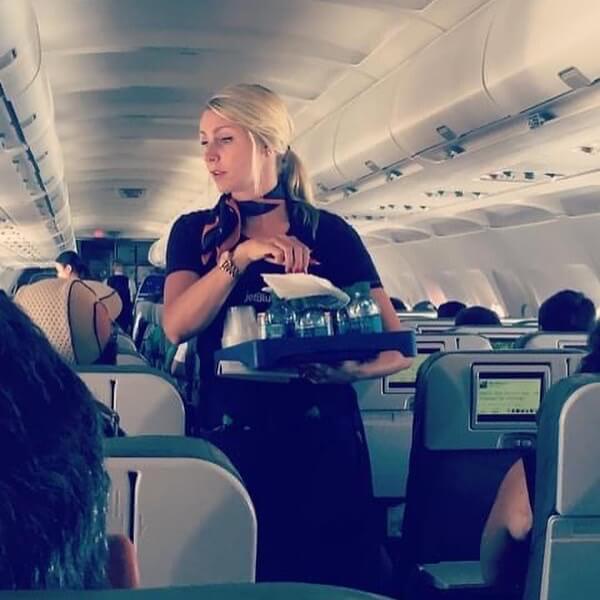
I promise your non-airline experience counts!
3. The Flight Attendant Interview
You’ve made it to your flight attendant interview. What now?
(You read this section, and ace it. That’s what.)
Obviously the interview process will vary from airline to airline. Some companies start with a video interview first, followed by an in-person interview for promising candidates. Some companies do casting-call style interviews; a ballroom full of people all vying for the same job. Some companies make cuts throughout the full-day interview process.
Some airlines provide airfare to a flight attendant interview and some do not. This can be a hurdle if you don’t live in the city where the interview takes place.
Glassdoor.com is an excellent resource to get sample interview questions, and I recommend that you do! There is nothing worse than feeling on the spot by an interview question and drawing a blank, only to come up with a great answer three hours later, when you’re home alone. Have a few anecdotes ready beforehand. Ways you went above and beyond at work. A problem or difficulty you overcame. Strengths and weaknesses. WHY you want to be a flight attendant for this company. Being prepared is always a good look. I prepped for my interview with Glassdoor and found some specific questions that came in handy.
Here are some general tips for your flight attendant interview:
- It starts before the questions.
You are being watched from the moment you walk through the front door. The way you interact with other interviewees is noted as much as the way you answer your interview questions. This is a social job, a fun job, a team endeavor—show them you’re up to it! Job interviews can be nerve-wracking, but push yourself to make conversation with others and be courteous and friendly in ALL interactions. Don’t be obsessing over your phone, rolling your eyes, yawning excessively, etc.
- Do. Not. Be. Late.
Being on time is one of the most important things in commercial aviation. Leave early and show up with enough time to chit chat with your fellow interviewees.
- Follow instructions to the letter.
If your pre-interview email mentions a dress code, do not take it as suggestion. Follow it to the letter. You will be working in a uniform and representing a specific brand—the company wants to see that you can follow instructions and be compliant in your uniform. If the instructions say to bring something—a pen, paper, passport, whatever—then bring it! Show them you can fall in line.
- Answer questions in the STAR format.
The STAR Method is a way to structure answers to interview questions, ensuring cohesive, easy to understand, relevant responses.
The STAR Method
STAR is an acronym that stands for situation, task, action, and result.
Situation- Set the scene of what was happening.
Task- The task is what needed to be done.
Action- This is where you explain what steps you took to fix the problem, go above and beyond, etc. This should be detailed, specific, and the bulk of your response.
Result- What was the outcome you achieved because of your actions?
This method should be used to answer behavioral questions. When you hear something like “Tell me about a time when…” you’ll know to bust out the STAR Method.
Here’s an example.
Q: Tell me about a time where you had a problem at work and how you overcame it.
A:
Situation— “I was working a flight from San Juan to Boston and a woman got my attention to tell me her dog had vomited all over her. Pets are supposed to remain in their carriers at all times during the flight, but I felt really bad for the dog, clearly sick. I also felt bad for the customer, who was embarrassed, and for the other passengers sitting next to her. It was unpleasant to say the least.”
Task— “The pet needed to be placed back in the carrier, per company policy, and the woman needed help cleaning up the mess. I also needed to ensure the comfort of the other customers in the area.”
Action— “First, I brought paper towels wet wipes, gloves, and a trash bag to the woman to help her get cleaned up. I noticed there was an empty seat bank a few rows up. I invited her to move to that empty row, with the dog. I advised her the dog, who had calmed a bit, would have to go back in the carrier, but that she would have more floor space for his carrier, and she could reach in the top and pet him to keep him calm. She agreed and moved to the new seat. Once she left, I checked the seat to ensure there was no mess left behind and did one more wipe of the seat with a sanitizer wipe.”
Result— “The dog did not have any more problems for the rest of the flight, the pet owner felt calmer being able to cater to the dog with a bit more space, and the two customers seated beside the woman’s previous seat were happy the mess was cleaned up and the dog was moved. It worked out for everyone.”
Of course, if you read my post about my Redeye Turn From Hell, you’ll know this is not, in fact, how the story ended. (And if you have a strong stomach, feel free to check it out!) But this is a solid example of how to set up a STAR interview answer.
To find common interview questions, and to get more STAR examples, check out indeed.com.
After you finish your interview, you might be lucky to receive a conditional offer of employment. The offer is conditional because before you get your wings you have to pass and complete initial training.
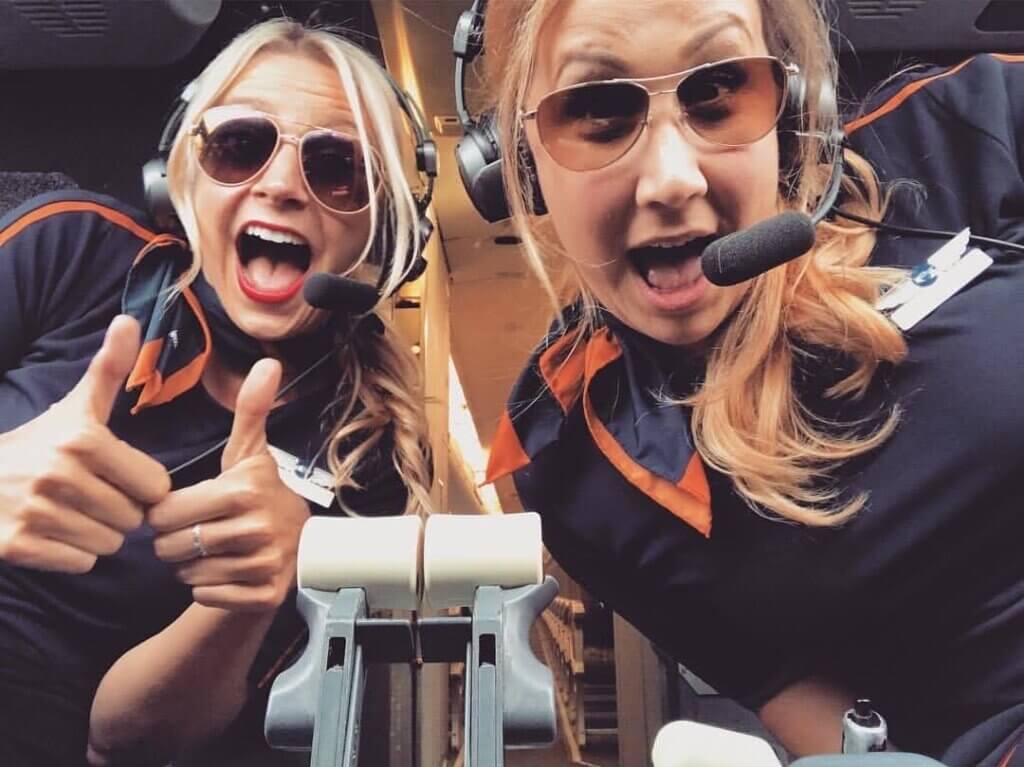
Professional and FUN are the vibe you should be channeling in your flight attendant interview. (In that order!)
4. Flight Attendant Training
Next up on your path to becoming a flight attendant is initial training.
Initial Flight Attendant Training can range from 4-8 weeks and takes place at your airline’s training center. You basically live in a hotel for that time and attend flight attendant training every day. During training there are classroom lessons as well as lessons in simulators. (This is a piece of equipment that simulates being in a real plane. Sometimes it is just the door, sometimes it is a raft, and sometimes it is a whole portion of an aircraft, complete with seats and galley, for practicing scenarios.)
Throughout your time in flight attendant training, you’ll learn about the company, its values, how to interact with customers, and most importantly, handling emergency situations. You learn basic medical procedures like CPR, how to fight fires, and how to evacuate an aircraft. You learn about the various types of aircraft you’ll be working on, including door operation and emergency equipment locations. You also learn a whole new language. Be prepared for a LOT of acronyms.
It’s a lot of information, but totally do-able. Pay attention, study for your tests, practice with your new friends.
What you don’t learn a whole lot about is all the things you do in your day-to-day life as a flight attendant: How to bid a schedule, how to find the van for your layover, how to set up your galley, the flow of a flight. These things, the ones you will do the most, all end up being on-the-job-training.
Accommodations for initial flight attendant training vary from airline to airline. I was lucky that my company provides individual rooms for everyone. I have heard that some other airlines make people share rooms for the duration of training. Gross.
At the end of initial training, you’ll “graduate” and receive your wings. Yippee!
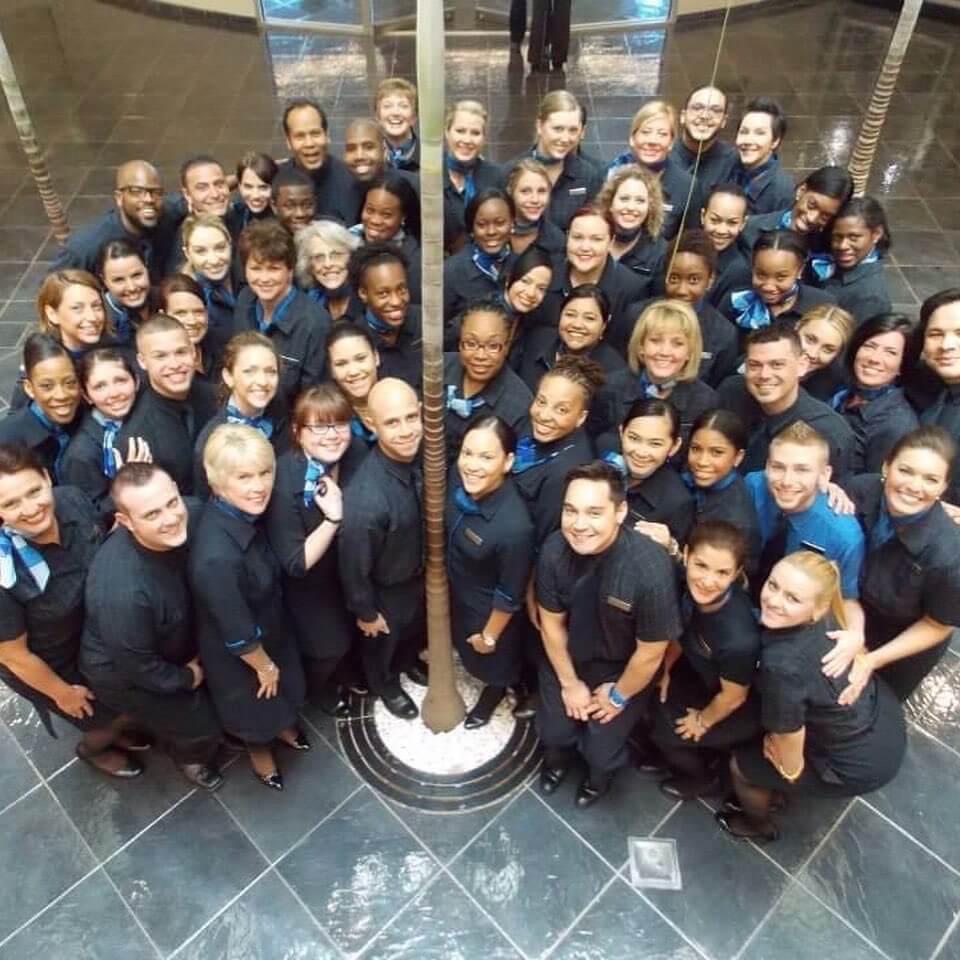
You'll make some friends that might last your whole life in flight attendant training.
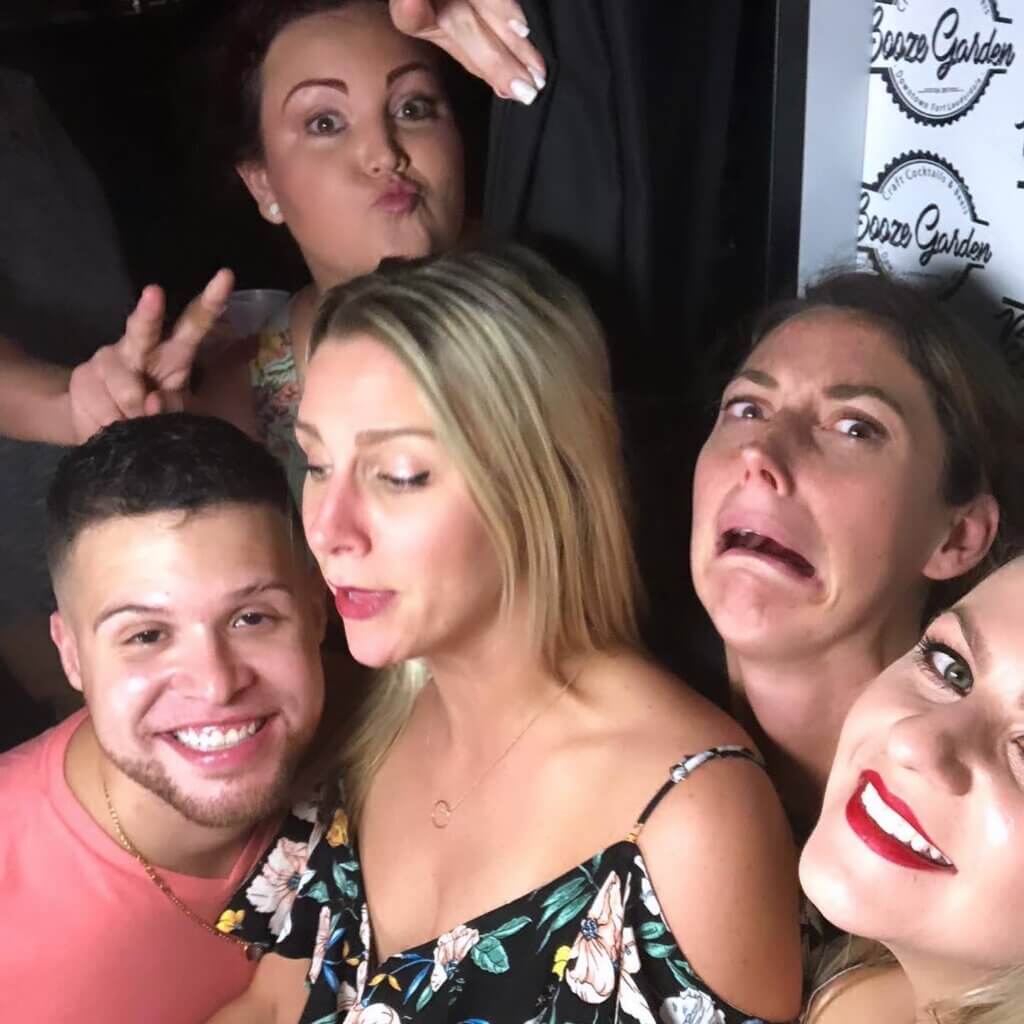
Case in point.
5. Time to Fly
Working As A Flight Attendant
It will shock you, after a month of classroom learning, to be thrown into the real world of aviation. You’ll be nervous on your first flight, but you’ll get through it. Senior flight attendants will show you the way, and you’ll learn the flow of a flight and the best way to set up your galley. You’ll eventually have preferences of routes you like to work and people you like to work with. After the first year you’ll feel like you can afford to live (kind of) and you’ll probably have a lot of new friends.
For this phase of your career, as a new flight attendant, my tips are as follows:
- Ask questions if you need to.
- People will give you tips and tricks—some of them are good! So be open to listening.
- Use your benefits as soon as you possibly can. It doesn’t have to be the trip of a lifetime or anything expensive. Even if it is just a quick weekend getaway to visit a friend, using your flight benefits is the REASON you are doing this job. It will show you the world of non-revving, of being part of an extended family, will remind you that while you might be dealing with low pay and lots of bodily fluids, there is still some element of glamour left in this job. You can hop a flight, at the drop of a dime, and be somewhere else. Look how mobile you are, the opportunities around you—to meet people, to see the world, to have big, story-worthy adventures.
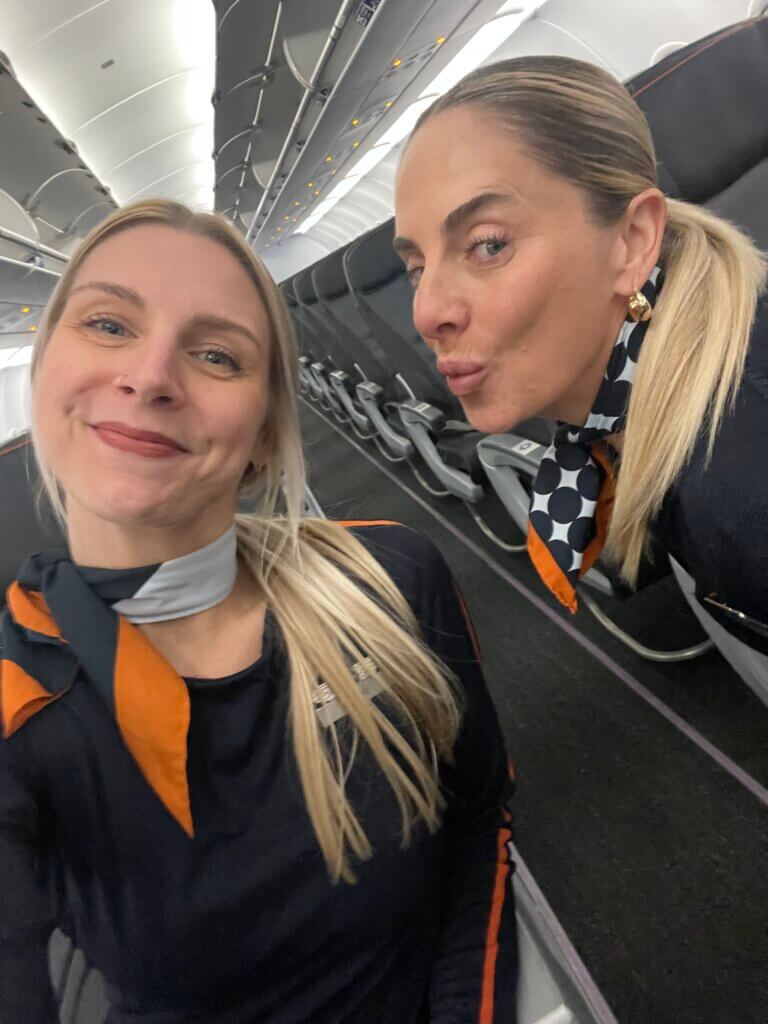
So, have I sold you yet?
I hope this post was helpful to any of you who might be considering becoming a flight attendant. I also hope my talk of low pay and bodily fluids did not completely scare you off. I’ve said it before and I’ll say it again: I LOVE my job. For me, this lifestyle—the flexibility, the travel, the people I meet, the freedom and mobility—makes the bad days worth it.
I’ve compiled some of my other flight attendant content that will give you a more fair assessment of the life and might provide other important information (like how to use those travel benefits!) Please check out at least one post where I’m gushing over my job. It’s a far more frequent sentiment. There is a good variety of content and information below, or you can visit the Flight Attendant Life archive and peruse at your leisure.
More questions? Feel free to DM me on instagram.
If you like what I’m doing here, please consider subscribing. You’ll get the latest Flight Attendant content and travel tips sent straight to your inbox. And, if you feel so inclined, you can now treat me to a coffee at buymeacoffe.com/awheelinthesky. A gift is never expected and always so, so appreciated. Thanks, as always, for stopping by.
Flight attendant hopefuls and aviation-curious folk, what are you waiting for? Dust off that resume and join us on the dark side!
More Flight Attendant content for the curious:
7 Things I Wish I Knew Before Becoming a Flight Attendant
The 6 Best and Worst Things About Being A Flight Attendant
10 Years of Flight Attendant Life: Reflecting On A Decade In The Air
Never Trust An “Easy Trip”: My Latest Flight Attendant Woes
Escaping to Work: Best Fringe Benefit of Flight Attendant Life?
Toni’s Top 9 Layovers of All Time
Pay Me for Boarding: Why Flight Attendants Must Fight For Fair Pay
The Unicorn Crew: How Superstar Coworkers Make Our Work (And Life) Better
So You Want to Fly for Free: A Comprehensive Guide to Non-Rev Travel
Flight Attendants: How to Keep Your Cool When Everyone is So F*cking Annoying



